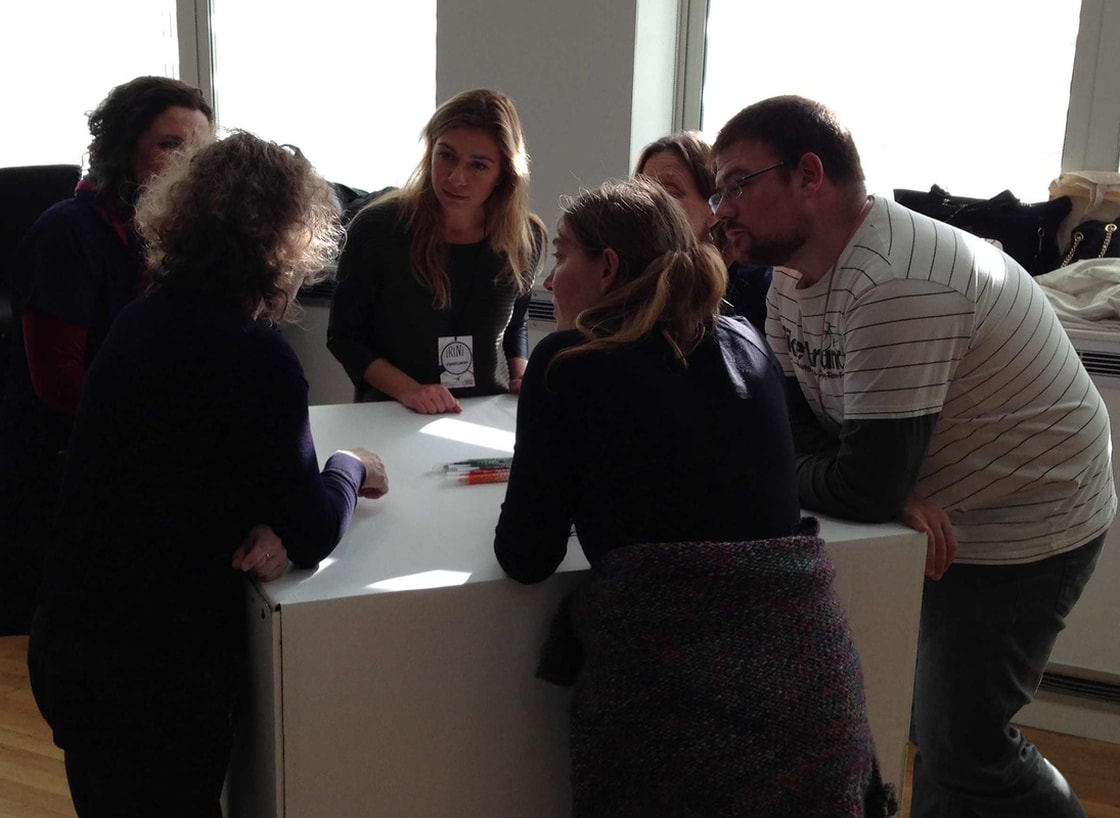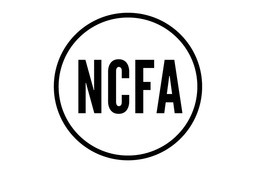Artists Campaign to Repeal the 8th
|
STATEMENT "The Eighth Amendment of the Constitution of Ireland, Article 40.3.3 inserted in 1983, has prevented our doctors and our legislators from providing proper care to women in Ireland. The resulting physical and emotional trauma inflicted on women is inexcusable and an ongoing cause of shame for Irish citizens.The Eighth Amendment undermines the status of the Irish Constitution. It is a key source of Ireland’s failure to reach international human rights standards and of the state’s failure to meet its obligations to vindicate women’s human rights.We, the undersigned artists, call for the repeal of the Eighth Amendment of the Irish Constitution and for action by our elected legislators to provide women in Ireland with modern reproductive health services in line with best medical practice and international human rights norms." |
Set up by a group of artists in February 2015 and organised by Cecily Brennan, Eithne Jordan, Alice Maher, Paula Meehan, Lia Mills, Mairead O'hEocha, Rachel-Rose O' Leary
Signatories
National Campaign for the Arts
NCFA Newsletters
NCFA Research
NCFA Pre-Budget Submissions 2017, 2016 & 2015
General Election Manifesto 2016
NCFA Colloquia on Research 2014
CAE - Culture Action Europe
Local* and European Parliament Elections Manifesto 2014
Examples of past local authority arts plans* - check for updates since this page was first published:
clare / donegal / kildare / longford / mayo / tipperary / westmeath / waterford / wexford / wickow & examples of locally commissioned arts research: Limerick Professional Artists Network / Monaghan Cultural Mapping Project / Wexford Economic Benefit Survey
clare / donegal / kildare / longford / mayo / tipperary / westmeath / waterford / wexford / wickow & examples of locally commissioned arts research: Limerick Professional Artists Network / Monaghan Cultural Mapping Project / Wexford Economic Benefit Survey
In the partnership government formed in May 2016, the responsibilities for Arts and the Gaeltacht were subsumed, and Heritage dropped, within a reconfigured Department of Regional Development, Rural Affairs, Arts and Gaeltacht under Minister Heather Humphreys. After unprecedented levels of criticism of the reconfiguration were amplified by an online campaign, the Minister confirmed a change of the name to the Department of Arts, Heritage, Regional, Rural and Gaeltacht Affairs in July 2016.
Gender and the Arts
Economic Research on Gender, Equality and Governance (2012)
Ireland 2008-2012: Untold Story of the Crisis - Gender, Equality and Inequalities, TASC Thinkpiece
Gender, Governance and the Irish Crisis, TASC Thinkpiece
The Living and Working Conditions of Artists in the Republic of Ireland and Northern Ireland: Republic of Ireland Version (2010)
When listing all of the factors that have held back their professional development as artists, women are much more likely to cite gender discrimination (one in six women artists cites this as against one in one hundred men.
Review of Visual Artists' Workspaces (2009)
70% of respondents to survey questionnaire were female.
Cultural Diversity and the Arts Research Project: Towards the Development of an Arts Council Policy and Action Plan (2009)
The Equality Act 2004 is the instrument by which the EU’s Race Directive, Framework Employment Directive and Gender Equal Treatment Amendment Directive are incorporated into Irish law.
In the Frame or Out of the Picture? A Statistical Analysis of Public Involvement in the Arts (2008)
In all cases where it is significant, being female increases the likelihood of attendance.
The Arts, Cultural Inclusion and Social Cohesion (2007)
Better data is also needed on who is involved in decision-making in the arts (race, gender, social class etc), to assess inclusivity in this aspect of participation.
The Public and The Arts (2006)
The biggest gender gap relates to the statement: ‘I am interested in the arts’, with which 83% of women agreed or strongly agreed with, compared to 68% of men.
Assessment of Economic Impact of the Arts in Ireland: Arts and Culture Scoping Research Project (2009) and Update (2011)
None.
Survey of the Social, Economic and Fiscal Status of the Visual Artist in Ireland (2008/2009)
None.... But there is reference to UNESCO Status of the Artist (1980): 'women in the various branches of artistic creativity'.
Government 'Culture 2025: A Framework Policy Draft'
As a first step, all relevant bodies will be asked to respond to the challenges of meeting the aims of this Policy Framework, and to set out how they will respond within their area to the opportunities presented by greater engagement with our culture and cultural heritage. This will involve Government departments, State agencies (in the areas of arts, film, broadcasting, heritage, Irish language and Gaeltacht etc), the cultural institutions and the local government sector.
Workshops will be held as required to assist in the preparation of the proposed action plan. This next phase will also be informed by continued engagement with the public, stakeholders and the Oireachtas, building on the process that has led to the formulation of this document.
Download the complete document from the Department's website.
Where are Arts, Culture & Heritage in the 'Programme for a Partnership Government'?
The Arts as well as Culture and Heritage are addressed in two sections of the new Programme for a Partnership Government. Firstly, as the fourteenth of 16 sub-headings under 'Protecting Local Services' in Section 4: Jobs and Rural Development:
In recognition of the crucial role that the Arts play in communities across the country, we will introduce a new small grants scheme to provide essential upgrades to existing regional arts and culture centres and support the Heritage Council. We will respond to the Western Development Commission’s Creative West report within three months. We will also boost supports to facilitate increased loans between our National Cultural Institutions and our network of regional museums. We will also expand the Historic Towns Initiative to include more towns. We will support the traditional heritage of literature, music, song & dance.
Secondly, appearing top of the list in Section 15: Ireland and the World - under the heading 'Arts, Culture & Heritage' - the emphasis is put on historical commemorations. The publication of the National Cultural Policy, the first in the history of the State, appears half way down a supplementary list of 'other measures' such as support for the Arts Council:
As highlighted during the recent 1916 Commemorations, arts and culture are intrinsic to the Irish State. We believe the arts belong to everybody and we need to increase access to, and participation in, the arts, boost our creative industries and preserve our heritage. Societies which invest in the arts and heritage are more prosperous, successful societies. The Centenary Programme is a unique opportunity to commemorate the centenaries of some of the most significant events in the history of this State in an inclusive way.
The new Government will continue to commemorate the most significant events in the history of this State, ensuring that these commemorations are inclusive, and enhance our understanding of our shared history, particularly among children and young people, so that they have a meaningful and lasting impact.
We will develop and publish an updated National Heritage Plan that sets out policies for the protection and promotion of our built and natural heritage and responds to challenges within the heritage sector. We will also implement the UNESCO Convention for the Safeguarding of Intangible Heritage so that Ireland’s unique cultural heritage assets, such as hurling, uilleann piping and the Folklore Collection in UCD, are given UNESCO recognition and status.
Among other measures, we will:
Work to progressively increase funding to the arts, including the Arts Council and the Irish Film Board, as the economy continues to improve;
Implement the Arts in Education Charter, which provides an unprecedented opportunity for children and young people to engage in a proactive and meaningful way with arts in education in Ireland;
Encourage each local authority to strengthen the role of arts and heritage officers. We will establish stronger links between arts and heritage officers, the OPW, Fáilte Ireland, the Arts Council, as well as with Local Enterprise Offices, to develop and promote opportunities for arts and cultural tourism;
Introduce a new small grants scheme to provide essential upgrades to existing regional arts and cultural centres around the country, including regional theatres;
Prioritise the publication of Culture 2025, the first national cultural policy. It will consider a range of important issues including: supporting artists and creative workers, improving access to culture, breaking down barriers in areas of social exclusion and disadvantage, and how culture is enriched by greater cultural diversity. The publication of Culture 2025 follows a widespread consultation process with relevant stakeholders;
Boost supports to regional museums and facilitate increased loans between our National Cultural Institutions and our network of regional museums;
Work with the Irish Film Board/Screen Ireland to ensure that Ireland is maximised as a location for international film production;
Support a built heritage investment scheme on an annual basis to support the conservation or heritage structures and the regeneration of urban and rural areas.
We will further encourage strong, mutually beneficial links between the business community and arts organisations. This approach will be based on helping arts organisations to capitalise on sponsorship opportunities, and develop business partnerships and fundraising skills.
In Jobs and Rural Development: 'Protecting Local Services', the sub-headings in order are: Next Generation Broadband, Mobile Phone & Broadband, No Closure of Small Schools, Local Improvement Schemes, Regional Apprenticeship and Traineeships, Post Offices & Community Banking, Credit Unions, Local Access to Credit, Technological Universities, Supporting Local Jobseekers, Rural Transport, Turf Cutting, Government Procurement & Smaller Businesses, Arts, Underwater Search & Recovery, Community Support.
In 'Ireland and the World', the headings in order are: Arts, Culture & Heritage, Defence, Northern Ireland, North-South Cooperation, Security & Crime Prevention, Ireland in Europe, Conflict Resolution, Trade, Humanitarian Aid, Passport Security, An Ghaeilge.
In 'Ireland and the World', the headings in order are: Arts, Culture & Heritage, Defence, Northern Ireland, North-South Cooperation, Security & Crime Prevention, Ireland in Europe, Conflict Resolution, Trade, Humanitarian Aid, Passport Security, An Ghaeilge.


